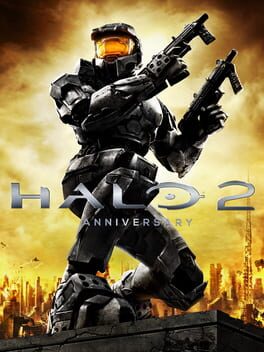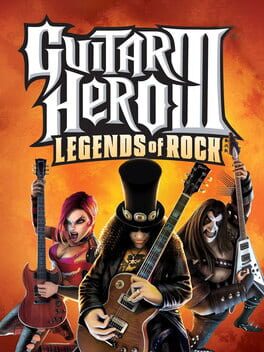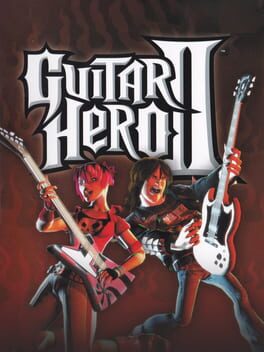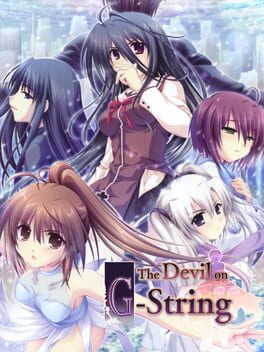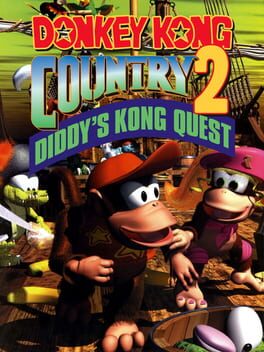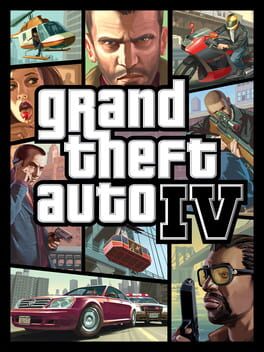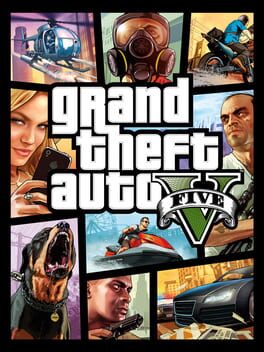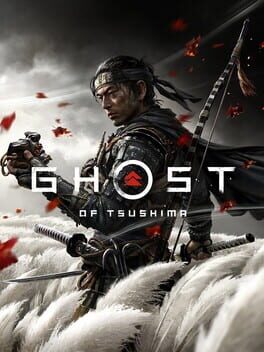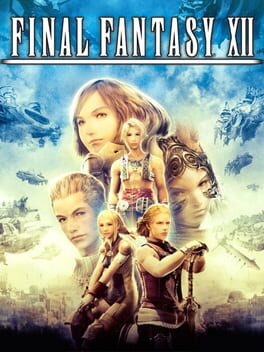Weepboop
BACKER
2014
Halo 2 is the series' apex in terms of story and worldbuilding, with an all encompassing campaign that has you fighting prophets, chasing zealots, and returning to Earth. No stone is left unturned as the Chief meets his soon to be friend the Arbiter, encounters Gravemind, and is privy to the unique danger that the Brutes of the covenant possess. I replayed this recently as part of the MCC and was genuinely impressed with how well both the gameplay and original visuals held up however the custcenes were VASTLY improved from the original and made me wish we got a Halo movie that could live up to the series' quality.
The only gripe I have with Halo 2 is that a death in co-op on legendary resets both players to the last checkpoint which was immediately annoying on the first level. I switched to Heroic with the person I was playing it with just so we could get through the story against our best wishes because the random nature of death in Legendary that lead to resetting just became annoying. I wish that was fixed when anniversary came out.
The only gripe I have with Halo 2 is that a death in co-op on legendary resets both players to the last checkpoint which was immediately annoying on the first level. I switched to Heroic with the person I was playing it with just so we could get through the story against our best wishes because the random nature of death in Legendary that lead to resetting just became annoying. I wish that was fixed when anniversary came out.
2006
The Devil on G String is narratively intense chess match between your main character and a mysterious figure that leaves no character uninvolved and will have you nervous throughout the entire playthrough. Nothing goes according to plan, there is always someone's life at stake, and uncomfortable decisions are always made. The two main characters and the antagonist are all very interesting and make for a great dynamic that makes story beats in the Visual Novel twist and hurt more than they could. The entierty of the game takes place in Tokyo, where you play as a rich financier with a connection to one of Japan's most sinister crimelords.
Your character must balance a school life, normal friendships with peers and romantic interests, his step-sister, and the figure threatening violence to those he loves most. It goes from 0-100 to 0 back to 100 various times throughout the story and will constantly leave you at the edge of your seat. The ending sequence to Devil on G String is one of the most insane endings to a "game" I've ever played.
Your character must balance a school life, normal friendships with peers and romantic interests, his step-sister, and the figure threatening violence to those he loves most. It goes from 0-100 to 0 back to 100 various times throughout the story and will constantly leave you at the edge of your seat. The ending sequence to Devil on G String is one of the most insane endings to a "game" I've ever played.
1998
Metal Gear Solid 1 aged surprisingly amazingly for a game that came out in 1998 and plays beautifully in 2021. The movie-like story, fun sneaking zones, and typical Kojima colorful cast of characters all make for the nearly flawless debut of the Metal Gear Solid series.
Taking place entierly on Shadow Moses Island, you will encounter some peculiar foes, sneak and shoot through a perilous situation, and be a part of some of the most famous moments in gaming history. The villains in this game are rather impressive, notable moments with Sniper Wolf, Ocelot, and Liquid Snake all being of note. This game truly plays like a movie that you never want to end, and thankfully the series was so succesful that more games came.
Taking place entierly on Shadow Moses Island, you will encounter some peculiar foes, sneak and shoot through a perilous situation, and be a part of some of the most famous moments in gaming history. The villains in this game are rather impressive, notable moments with Sniper Wolf, Ocelot, and Liquid Snake all being of note. This game truly plays like a movie that you never want to end, and thankfully the series was so succesful that more games came.
MGSV is the black sheep of the Metal Gear Series, but I still believe it's a must play due to the advancements in narrative, interesting characters, and unmatched freedom of gameplay.
Critics of the Phantom Pain cite that it is a unfinished game in which Kojima's dream of story was never fully realized, and is too light on the story (often calling it "Horrible".) However I could not disagree more. What you get out of MGSV from a story perspective is an incredible explanation of story that connects MGS: Peace Walker to Metal Gear 1 which leads into the best known Metal Gear Solid series. You come to a crossroads, allying with everyone's favorite "villain" Revolver Ocelot, the ever so mysterious Kazuhira Miller, the intruiging scientist Huey Emmerich (father to Hal aka Otacon,) and the beautiful sniper Quiet. This cast of characters exists as a dysfunctional family to Snake's Diamond Dogs PMC who operate as their own entity with no alleigance to country. Through time spent with these characters both on the field and in the mother base, you learn more and more about the identity and reasonings of your enemies and foes. Who is Mr X and what is Cypher doing in Afghanistan and in Africa? As you play through the story you discover the harrowing truth behind their actions and what the Diamond Dogs must do to stop it.
Gameplay is easily the highlight for most people in TPP, with an unparalleled degree of freedom in approach and in-fight decisions. You have an outrageously large arsenal to choose from before combat with everything from silenced tranquilzer pistols, to rocket arms, to inflatable dummies that made fighting and making your way to your targets ALWAYS fun and innovative. The buddies you are allowed to bringalong are also interesting, each providing a different service that make can vastly change the outcome of the fight or objective. Quiet can provide great overwatch and assistance if things get hairy, D-Dog can help sniff out objectives and enemies in the area, D-Walker is great if you want to go guns blazing, and D-Horse is great for early game traversal.
With a great cast of characters, impressive open world, and seemingly unending gameplay mechanics, MGSV is a great experience and a phenomenal next step in the MGS series.
Critics of the Phantom Pain cite that it is a unfinished game in which Kojima's dream of story was never fully realized, and is too light on the story (often calling it "Horrible".) However I could not disagree more. What you get out of MGSV from a story perspective is an incredible explanation of story that connects MGS: Peace Walker to Metal Gear 1 which leads into the best known Metal Gear Solid series. You come to a crossroads, allying with everyone's favorite "villain" Revolver Ocelot, the ever so mysterious Kazuhira Miller, the intruiging scientist Huey Emmerich (father to Hal aka Otacon,) and the beautiful sniper Quiet. This cast of characters exists as a dysfunctional family to Snake's Diamond Dogs PMC who operate as their own entity with no alleigance to country. Through time spent with these characters both on the field and in the mother base, you learn more and more about the identity and reasonings of your enemies and foes. Who is Mr X and what is Cypher doing in Afghanistan and in Africa? As you play through the story you discover the harrowing truth behind their actions and what the Diamond Dogs must do to stop it.
Gameplay is easily the highlight for most people in TPP, with an unparalleled degree of freedom in approach and in-fight decisions. You have an outrageously large arsenal to choose from before combat with everything from silenced tranquilzer pistols, to rocket arms, to inflatable dummies that made fighting and making your way to your targets ALWAYS fun and innovative. The buddies you are allowed to bringalong are also interesting, each providing a different service that make can vastly change the outcome of the fight or objective. Quiet can provide great overwatch and assistance if things get hairy, D-Dog can help sniff out objectives and enemies in the area, D-Walker is great if you want to go guns blazing, and D-Horse is great for early game traversal.
With a great cast of characters, impressive open world, and seemingly unending gameplay mechanics, MGSV is a great experience and a phenomenal next step in the MGS series.
Metal Gear Solid 2 is another masterclass by Hideo Kojima and Kojima productions in storytelling and narrative exposition. It's hard to review Metal Gear games without going into the extremely convoluted storylines that stretch far and wide in scope, so I will avoid that here.
The gameplay of MGS2 is uh... interesting. The player takes control of Jack, codenamed Raiden and originally codenamed Snake, after playing as Solid Snake for the first few hours of the game. Departing from MGS1's purely top down combat in which action occurred on the four cardinal directions, MGS2 goes first person (sort of) in it's combat. This is cool in how it changes how the player discovers solutions to the mini puzzles and sneaking sequences, however can make boss fights and getting spotted extremely frustrating. MGS will follow this combat method for the rest of the series (barring spinoffs,) becoming much more normalized and easier to perform as the games go on.
MGS2 takes place in two locations, one where you play as Solid Snake on a tanker ship that you must infiltrate in which you discover the source of conflict for the game, and one where you play as Raiden on Big Shell. These locations are not too interesting, however that's not what matters in MGS2. Shadow Moses was the same way in MGS1, its just snow and a lot of snow, however the narrative and characters make this feel worthwhile, it's the same on Big Shell.
Characters are always MGS' strong suit and its no stranger here. Both Solid Snake and Raiden are extremely interesting characters, especially as you learn the tragic history behind the latter. Teamates like Rose, The Colonel, Otacon, and Emma Emmerich each have their fair share of intrigue and contributions to the series lore that will leave you always wanting more. Villains like Solidus, Ocelot, Fortune, and Vamp can all be absolutely hilarious at one point and rather captivating at others, which is something only Kojima has really mastered. There are moments these characters will make you laugh (see: Vamp running up Big Shell and Raiden's "Colonel, we managed to avoid drowning") but also times where they'll craft a thought provoking speech with extreme ramifications.
Narratively MGS2 is probably my favorite in the series (Snake Eater might be tied) with the implications that nuclear arms and geopolitics play in the story. It's something that is legitimately impossible to understand unless you've played the game so I want to avoid it (also spoilers) however I strongly urge people to play through these games despite being dated because of this.
MGS2 Plays like an old game, but the story and impressive cast of characters make for a historic gaming experience.
The gameplay of MGS2 is uh... interesting. The player takes control of Jack, codenamed Raiden and originally codenamed Snake, after playing as Solid Snake for the first few hours of the game. Departing from MGS1's purely top down combat in which action occurred on the four cardinal directions, MGS2 goes first person (sort of) in it's combat. This is cool in how it changes how the player discovers solutions to the mini puzzles and sneaking sequences, however can make boss fights and getting spotted extremely frustrating. MGS will follow this combat method for the rest of the series (barring spinoffs,) becoming much more normalized and easier to perform as the games go on.
MGS2 takes place in two locations, one where you play as Solid Snake on a tanker ship that you must infiltrate in which you discover the source of conflict for the game, and one where you play as Raiden on Big Shell. These locations are not too interesting, however that's not what matters in MGS2. Shadow Moses was the same way in MGS1, its just snow and a lot of snow, however the narrative and characters make this feel worthwhile, it's the same on Big Shell.
Characters are always MGS' strong suit and its no stranger here. Both Solid Snake and Raiden are extremely interesting characters, especially as you learn the tragic history behind the latter. Teamates like Rose, The Colonel, Otacon, and Emma Emmerich each have their fair share of intrigue and contributions to the series lore that will leave you always wanting more. Villains like Solidus, Ocelot, Fortune, and Vamp can all be absolutely hilarious at one point and rather captivating at others, which is something only Kojima has really mastered. There are moments these characters will make you laugh (see: Vamp running up Big Shell and Raiden's "Colonel, we managed to avoid drowning") but also times where they'll craft a thought provoking speech with extreme ramifications.
Narratively MGS2 is probably my favorite in the series (Snake Eater might be tied) with the implications that nuclear arms and geopolitics play in the story. It's something that is legitimately impossible to understand unless you've played the game so I want to avoid it (also spoilers) however I strongly urge people to play through these games despite being dated because of this.
MGS2 Plays like an old game, but the story and impressive cast of characters make for a historic gaming experience.
2016
Abzu is something you can play on your computer or console, but I would hesitate to call it a video game, moreso an experience. There is no HUD in Abzu, there are no quest markers, no voices, no enemies, just you and the deep blue sea... and man does it look and feel good.
The experience is not long, but it is fulfilling. In some of the most gorgeous art and environment design in video game history, you find yourself discovering and freeing schools of several species' of fish and aquatic prehistoric beings while some jaw droppingly gorgeous music plays.
As some other reviewers have stated, there is no real "point" to Abzu other than the one the player imagines. Why are you swimming? What is it that you are discovering through your journey? Where does the ocean end? It's all up to you. Abzu is a terrific piece of media that feels more like interactive therapy than a video game.
The experience is not long, but it is fulfilling. In some of the most gorgeous art and environment design in video game history, you find yourself discovering and freeing schools of several species' of fish and aquatic prehistoric beings while some jaw droppingly gorgeous music plays.
As some other reviewers have stated, there is no real "point" to Abzu other than the one the player imagines. Why are you swimming? What is it that you are discovering through your journey? Where does the ocean end? It's all up to you. Abzu is a terrific piece of media that feels more like interactive therapy than a video game.
2008
GTA IV is the best marriage of an entertaining singleplayer with an exciting story and a multiplayer that gives you a million things to do and places to go. Liberty City is a fantastic location for the sprawling scope of a GTA and the tools you have at your disposal make it an absolute blast to explore and witness.
2013
GTA V was a blockbuster amazing game on launch with a seemingly endless things to do, and few games existed at the time that could hold a candle to it in the experiences you could have with friends.
A few years and re-releases down the line and you have a bunch of cheaters and a saturated economy which waters down the overall experience.
A few years and re-releases down the line and you have a bunch of cheaters and a saturated economy which waters down the overall experience.
2020
Ghost of Tsushima is the best Assassin's Creed game ever made. It does one thing very well: be the video game version of the critically acclaimed Akira Kurosawa (well known for films like The Seven Samurai and Yojimbo.) This means that there is a very predictable storyline in which good is matched up against evil and there is a quandary of morals, however it never gets TOO creative in its scope. This is both good and bad, it does a very good job at wearing its influences, yet can be frustratingly simple.
That all being said this is easily one of the most beautifully designed games ever made, and has a look and feel that is nearly unmatched in the modern gamescape. Seriously this is a great recommendation for people who don't want a lengthy story but rather a great visual and comperable story experience.
That all being said this is easily one of the most beautifully designed games ever made, and has a look and feel that is nearly unmatched in the modern gamescape. Seriously this is a great recommendation for people who don't want a lengthy story but rather a great visual and comperable story experience.
2006
FFXII is a flawed game with extremely high highs that has a great and long winded story, beautiful zones and music to match, and rewards creativity in gameplay and cheeseability of boss fights and certain scenarios. Where the game lacks is in its main character and difficulty curve later on in the game. Seriously, if you're a fan of the more action oriented JRPG series like Tales and Xenoblade but want a story that matches that of the legendary FF series, FFXII is my go-to recommendation.
1999
I just reviewed FFVII and my sentiments for FFVII are mostly identical, boiling down to this:
Pros:
-Great Story
-Top tier soundtrack once again soundtracked by Nobuo Uematsu (Fisherman's Horizon and Eyes on Me hnggggh)
-Extremely well written characters with clear arcs
-Better visuals than FFVII (3D development)
Cons:
-Lack of Direction during quests
-Random Encounters
-What in the everliving name of all that is good is the junction system
Squall in my opinion is the best written video game character ever, with larger emotional depth than gaming had seen previously. He's a realistic look into somebody with depression and social anxiety, someone who always wants to reach out yet doesn't want to hurt those around him. It's a shame people chalked his character to "Lul Emo XDDDD" and didn't look past the sadness and abandonment his character goes through. I'm also absolutely a fan of his romance with Rinoa and think that its the best canonical romance in a video game.
Pros:
-Great Story
-Top tier soundtrack once again soundtracked by Nobuo Uematsu (Fisherman's Horizon and Eyes on Me hnggggh)
-Extremely well written characters with clear arcs
-Better visuals than FFVII (3D development)
Cons:
-Lack of Direction during quests
-Random Encounters
-What in the everliving name of all that is good is the junction system
Squall in my opinion is the best written video game character ever, with larger emotional depth than gaming had seen previously. He's a realistic look into somebody with depression and social anxiety, someone who always wants to reach out yet doesn't want to hurt those around him. It's a shame people chalked his character to "Lul Emo XDDDD" and didn't look past the sadness and abandonment his character goes through. I'm also absolutely a fan of his romance with Rinoa and think that its the best canonical romance in a video game.
1997
FFVII is one of the most famous stories in all of gaming, and easily one of its best, but can you really review and rate a game just because the story is good? The answer is no.
If FFVII was the exact same game but with Remake controls and looks, it would be the best game of all time but there are two things that keep this game from being the best from a pure gameplay perspective and they both boil down to the fact that this came out in 1997. The first is the graphics, early 3D is DIFFICULT to look at now in a lot of games and FFVII is no stranger. Series mainstays like Cloud, Sephiroth, and Aerith in non cutscenes are all boiled down to a few bare-faced polygons which is unflattering. The second major thing that keeps this from being a five star is the lack of quest direction and subsequent random encounters associated with getting lost for any period of time. Because of outdated gameplay mechanics and visuals, FFVII can be hard to recommend to someone in the current year, however I'd suggest at least playing the game with game assists to experience its story.
Music and writing are two very high highlights of the story of Cloud and his rivalry with the most dastard villain in the history of gaming. Everyone knows who lives and who dies within the story, but how do they arrive at these conclusions?
If FFVII was the exact same game but with Remake controls and looks, it would be the best game of all time but there are two things that keep this game from being the best from a pure gameplay perspective and they both boil down to the fact that this came out in 1997. The first is the graphics, early 3D is DIFFICULT to look at now in a lot of games and FFVII is no stranger. Series mainstays like Cloud, Sephiroth, and Aerith in non cutscenes are all boiled down to a few bare-faced polygons which is unflattering. The second major thing that keeps this from being a five star is the lack of quest direction and subsequent random encounters associated with getting lost for any period of time. Because of outdated gameplay mechanics and visuals, FFVII can be hard to recommend to someone in the current year, however I'd suggest at least playing the game with game assists to experience its story.
Music and writing are two very high highlights of the story of Cloud and his rivalry with the most dastard villain in the history of gaming. Everyone knows who lives and who dies within the story, but how do they arrive at these conclusions?
